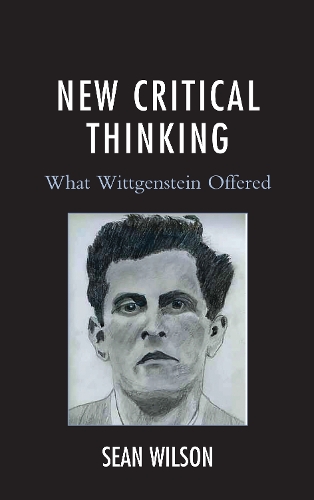
New Critical Thinking: What Wittgenstein Offered
(Hardback)
Available Formats
Publishing Details
New Critical Thinking: What Wittgenstein Offered
By (Author) Sean Wilson
Bloomsbury Publishing PLC
Lexington Books
22nd October 2018
United States
Classifications
Professional and Scholarly
Non Fiction
Philosophy
160
Physical Properties
Hardback
198
Width 159mm, Height 231mm, Spine 19mm
494g
Description
Ludwig Wittgenstein changed everything. To understand how, we need to understand what he did to the subject of critical reasoning. Wittgenstein didnt leave us philosophy; he left a pathway for a more perspicuous intellect. This was caused by a psychological condition that made him meticulous and hypersensitive. He could abnormally perceive three natural phenomena: (a) the social traits implicated in word use; (b) the task-functions signified in communication; and (c) the pictures that flash before the minds eye. With this unique acuity, he showed us how post-analytic thinking was to occur. And this discovery changes everything. It revolutionizes how we must argue with one another and what we believe is true. Instead of focusing primarily upon premises or facts, we must point people to how their intellect behaves during a speech actsomething called therapy. And this has radical implications for analysis, conceptual investigation, value judgments, political ideology, ethics and even religion. This book is both an explanation of, and a blueprint for, the new critical thinking. Written for both a lay and special audience, and for all fields of study, it shows what Wittgenstein invented and how it affects us all.
Reviews
For years Wittgensteinian philosophers have wanted to see a movement away from exegesis toward the application of Wittgensteins way of dealing with problems to new areas. Wilsons book promises to make a contribution to this effort. The book is blazing a trail of its own, which is its great strength. To the extent that Wilson has not only been a pioneer but also got Wittgenstein right, this is an excellent achievement. -- Duncan Richter, Virginia Military Institute
Sean Wilsons new book offers some of the clearest insights into Wittgensteins later thoughts that I have come across. By clearly explaining three facets of Wittgensteins problem-solving therapy, Wilson is able to neatly put importantbut often confusingideas into a coherent and helpful form. I highly recommend this book to any reader, not just the career philosopher. It may just change the way you view the world. -- Ian Bartrum, William S. Boyd School of Law, UNLV
In his book Sean Wilson has devoted himself to an important task rarely undertaken by Wittgenstein scholars: rather than limiting himself to interpreting Wittgensteins thought or bringing it to bear on philosophical problems, he has explored ways in which Wittgensteins insights can be employed in the clarification of many kinds of intellectual entanglements, within various academic disciplines, in legal argument, political and cultural debate and everyday interchange. -- Lars Hertzberg, bo Akademi University
Author Bio
Sean Wilson is associate professor at Wright State University and is the author of The Flexible Constitution.
